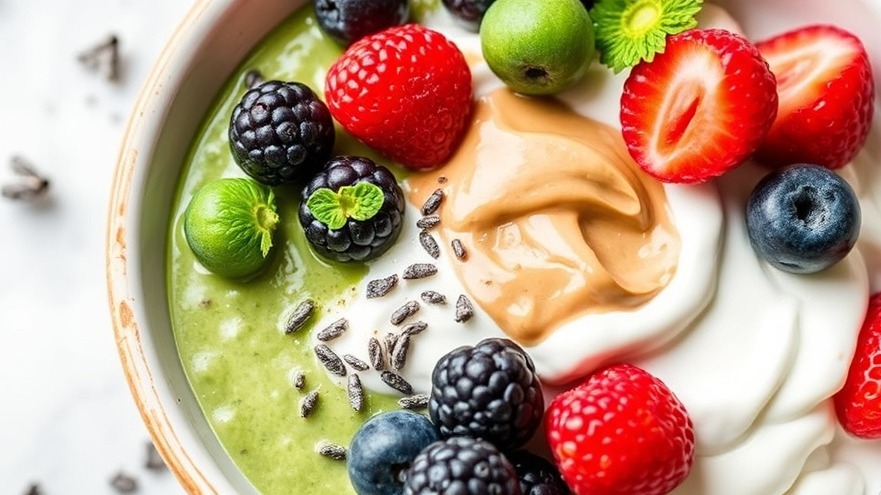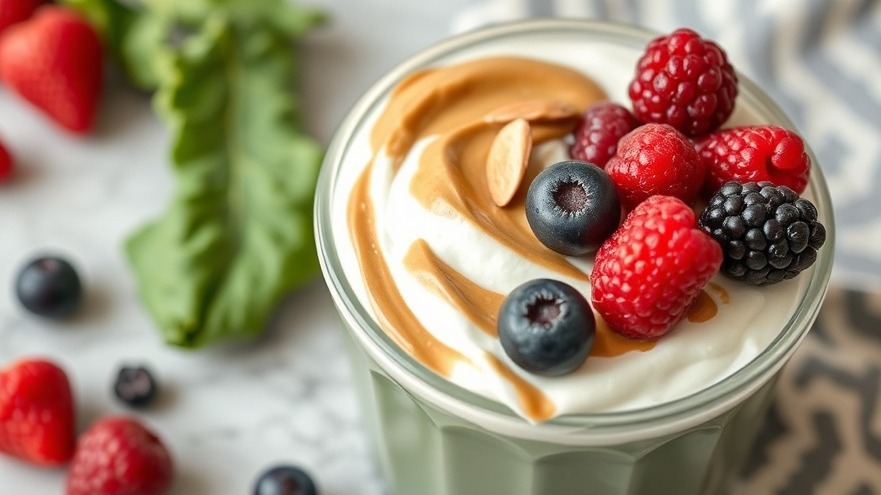
We are frequently asked if a smoothie recipe is suitable for diabetics. To which we always direct you to consult your doctor as we are not health care professionals. So it was interesting to come across this article by Dr Nina Cherie dealing with this specific topic.
And while we give you her 5 ‘nutritional strategies that you should follow to ensure that your smoothies aren’t exceptionally high in sugar’ to consider, we do still strongly recommend you discuss the information with your health care professional.
We have also included a smoothie, following her strategies, at the end of the post.
Dr Cherie says …
There’s absolutely no reason why fruit smoothies and smoothies in general can’t be included in a well-balanced diet. However, if you have diabetes, hyperglycemia, or are just trying to lower your risk, there are certain nutritional strategies that you should follow to ensure that your smoothies aren’t exceptionally high in sugar.
Strategy #1: Avoid using large amounts of fruit
It’s a good rule of thumb to include sensible portions of fruit, especially those lower in sugar like berries. While bananas are fine, you should note that including 2 bananas in one smoothie uses your entire recommended daily serving of fruit in one meal! Best to avoid that and spread it through your day.
There are many people … who have unknowingly sabotaged their efforts to eat healthy due to a serious misunderstanding of how simple substances like sugar can impact the body, even in natural form. While you might think that the sugar in fruits is meaningless, it’s important to understand that sugar is hidden in many types of foods including potatoes, breads and even milk.
Strategy #2: Use plenty of leafy green vegetables.
As we all know, smoothies are a great way to hide those leafy green veggies you know are good for you but may not like to eat. They are great to use as they are …
… essentially sugar-free and house incredibly large amounts of fiber, vitamin C, vitamin K, potassium, and calcium. They are also rich in potent antioxidants like carotenoids and indoles, which have been shown to protect against heart disease, cancer and countless other chronic conditions.
Strategy #3: Use Greek yogurt or milk as a base.
Protein-rich foods like these help keep blood sugar levels under control and help trigger those sensors in the body that indicate you are full. They are also rich in vitamin B12 and calcium which are …
… critical for adequate energy levels, bone health, and proper functioning of nerves, muscles and blood vessels.
Strategy #4: Incorporate foods rich in healthy fats.
Healthy fats are great for stabilising blood sugar levels. These are monounsaturated fat and omega-3 fatty acids which are found in avocado, nuts, flaxseeds and chia seeds. You can also include a little nut butter. However, while these fats are good for you, they are still fats and therefore high in calories, so watch out!
Strategy #5: Experiment with 100 percent whole grain foods.
Whole grains like oats, quinoa and other healthy whole grains reduce the risk of blood sugar spikes, are full of fiber and help fill you up. Dr Cherie explains …
Dietary fiber inhibits sudden spikes in blood glucose and insulin levels by slowing the digestion and absorption of glucose from the small intestine. Due to these effects, regularly consuming fiber greatly helps in both the prevention and management of diabetes and other conditions including heart disease, high blood pressure and colorectal cancers.
While these 5 Strategies for Smoothies for Diabetics are ones we have regularly recommended on Drink Me Healthy for healthy smoothies, it’s good to be able to give them in answer to questions from diabetics. However, we again strongly recommend you discuss the strategies with your own health professional in case you have specific needs that vary – we are all, after all, unique individuals with unique and individual needs.
Dr Cherie finishes her article with this …
When prepared the right way, smoothies can generally supply individuals with hyperglycemia or diabetes with healthy doses of good carbohydrates and other high-quality nutrients. By considering the information I’ve presented and following the strategies I’ve outlined, you can greatly increase the overall nutritional value of your smoothies without sending your blood sugar levels spiraling out of control.
Sample Recipe: Healthy Green Smoothie for Diabetics
Serves 1
Ingredients:

1/2 cup full fat Greek Yogurt
1 tablespoon Almond Butter or your favorite nut butter
1/2 cup Blueberries, frozen*
1/2 cup Strawberries, frozen*
1 cup Kale
3/4 cup Water
Blend until smooth and enjoy.
* Variation: 1 cup of your favorite berries, single variety or mixed
For the full article on 5 Strategies for Smoothies for Diabetics see our source attribution.
Source: Dr Nina Cherie PHD
Recipe Source: DrinkMeHealthy.com
Photos: DrinkMeHealthy.com
 Add Row
Add Row  Add
Add 







 Add Row
Add Row  Add
Add 


Write A Comment